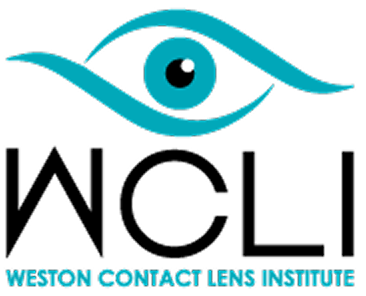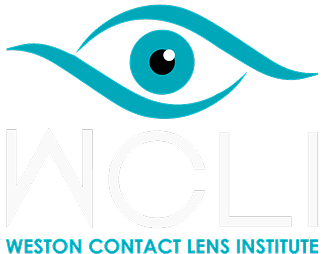Orthokeratology (Ortho-K) lenses have transformed the way many people manage their vision. The specially designed Rigid Gas Permeable (RGP) lenses allow patients to enjoy clear vision during the day without the need for glasses or soft contact lenses. For many, Ortho-K lenses are a liberating alternative to traditional vision correction methods. However, their effectiveness relies on the wearer’s commitment. But what happens if you skip a night? Let’s take a closer look at how missing a wear can affect your vision.
The Purpose of Ortho-K Lenses
To understand the impact of skipping a night, it’s essential to grasp what Ortho-K lenses do and how they work. Orthokeratology lenses gently flatten the cornea while you sleep, temporarily changing the shape to correct refractive errors caused by conditions like myopia and astigmatism. When you wake up and remove your lenses, the reshaped surface allows light to focus directly on the retina, providing clear vision without the need for corrective eyewear.
Effects of skipping Ortho-K lenses for One Night
If you skip just one night of wearing your Ortho-K lenses, the immediate effect will be mild but noticeable. After a night without your lenses, you’ll notice that your vision is not as sharp as it usually is. Most patients experience blurriness or minor visual distortion during the day. These subtle changes may be uncomfortable, but most of our patients can manage a day without too many issues.
The cornea begins to revert to its natural shape immediately, which is why you need to wear the lenses every evening. The degree to which your vision will change depends on your initial level of myopia, how long you’ve been using Ortho-K lenses, and the malleability of your corneas. Patients who have worn their lenses for an extended period may experience a slower regression and milder vision changes.
Fortunately, skipping one night typically doesn’t cause any long-term damage or complications. Once you resume wearing the lenses consistently, your cornea will gradually flatten again, and your vision will become clear again within two to three days. Skipping a night due to unforeseen circumstances isn’t typically an issue, but what about those who skip several nights?
What Happens If I Skip Multiple Nights of Ortho-K?
Skipping more than one night of Ortho-K lens wear, especially consecutively, can lead to a significant regression and considerable vision deterioration. When Ortho-K lenses are not worn consistently each night, the cornea gradually loses its reshaped form and reverts to its natural curvature.
After multiple missed nights, you will start to experience increasing blurriness and may experience headaches due to eye strain. These symptoms can interfere with daily tasks such as driving, reading, and working on a computer, especially if you don’t have a backup pair of glasses or soft contact lenses on hand.
Occasionally missing a night of Ortho-K lens wear is usually manageable, though you may notice some blur the next day. However, taking frequent or extended breaks can reduce the effectiveness of the treatment and make it harder to regain clear vision quickly. For best results, consistent nightly wear is recommended.
Is it Risky to Skip Wearing My Ortho-K Lenses?
Generally, skipping a few nights of Ortho-K wear poses no direct health risks. However, there are some indirect risks to consider. Firstly, overnight Ortho-K lens wear requires diligent care and hygiene to avoid infections. When you skip wearing your lenses and do not clean them adequately before reuse, you increase the risk of contamination.
Secondly, extended periods without your Ortho-K lenses can lead to discomfort when you start wearing them again. You can expect the same adjustment period you experienced when you first started wearing your lenses. If you experience discomfort or irritation, it will likely persist until your corneas readjust to the changes the lenses create on the surface of your eyes.
Lastly, children using Ortho-K lenses for myopia management should not skip multiple nights in a row. Failing to wear lenses can reduce the effectiveness of the myopia management, which can impact long-term eye health. If your child will be away for a sleepover or school camp, check in with your optometrist beforehand to make sure they have backup glasses for clear vision during the break
What To Do When You Have No Choice But to Skip a Night?
If you know in advance that you will need to miss a night of wearing your Orth-K lenses due to travel or a special occasion, it’s essential to plan accordingly. Keep your glasses or daily contacts with you as a backup for the next day. After the missed night, resume lens wear as soon as possible. It may take a couple of nights for your vision to return to optimal, so avoid any activities that rely on perfect vision.
If you frequently forget about your Ortho-K lenses or intentionally skip nights, discuss your difficulties with your eyecare practitioner. It’s possible that your lifestyle may not be compatible with Ortho-K, in which case, there are alternative corrective options. To enjoy the full benefits of orthokeratology, you must be consistent and committed to using your lenses every single night without fail.
Consistency Is Key
Orthokeratology lenses are a highly effective method of vision correction, but they require consistent use. Skipping a night usually only results in minor vision degradation, but it shouldn’t cause any lasting damage. However, skipping multiple nights or regularly forgetting to insert your lenses before bed can cause prolonged vision regression, discomfort, and reduced treatment efficacy.
If you’re having trouble wearing your Ortho-K lenses consistently, we’re here to help. The team at Weston Contact Lens Institute can work with you to troubleshoot the issue and explore possible solutions. Whether the challenge is comfort, handling, or routine, our goal is to support you in finding the best vision correction option for your lifestyle. Ortho-K isn’t the only choice; there are other effective alternatives, and we’ll help you discover what works best for you.

.jpg)




